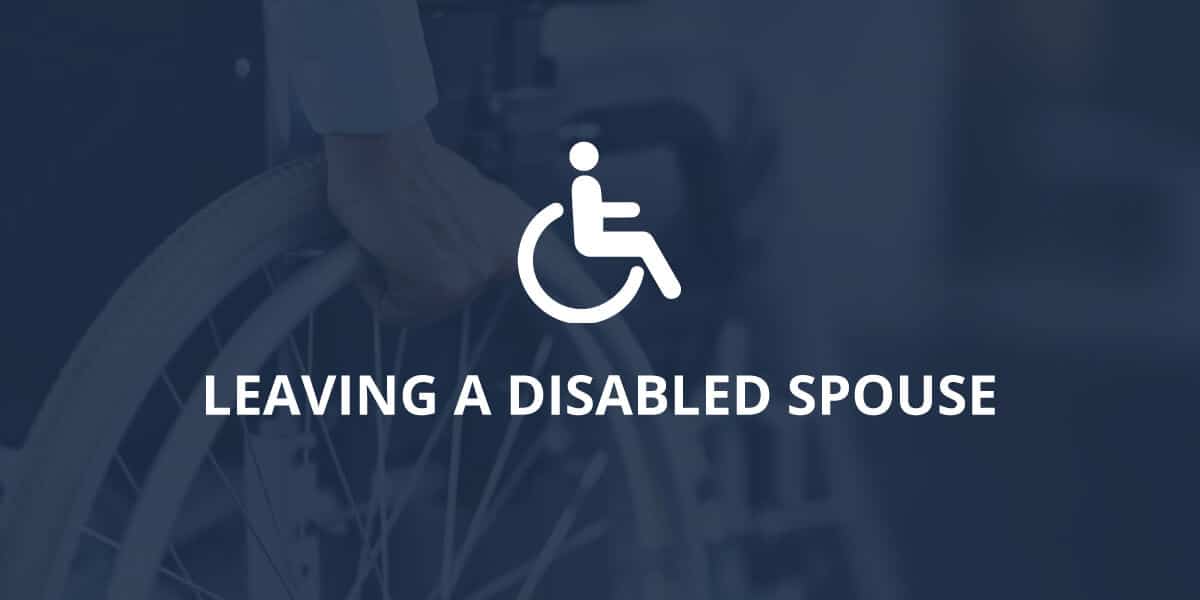Leaving an Abusive Disabled Spouse
Planning Your Exit
Relationship abuse should not be tolerated regardless of a partner’s physical condition. However, leaving requires careful planning to ensure the safety and well-being of all involved. With compassion and assistance from community resources, an exit can be achieved.
Seeking Counsel
Abuse intervention counselors can help develop an exit strategy and safety plan. Counselors understand the complex dynamics of abusive relationships and can connect to local domestic violence programs for additional support. Speaking with counselors privately provides clarity and protects confidential information until one is ready to disclose the decision to leave.

Involving Trusted Allies
Informing a few close friends or family members of the intent to leave increases accountability and enables allies to assist if problems arise. Allies can help pack belongings, provide temporary housing, or accompany one to gather important documents from the home. Involving trusted individuals distributes responsibility and lessens the risk of escalating confrontation during the exit process.
Connecting Support Services
With counselor guidance, reach out preemptively to relevant disability support organizations like vocational rehabilitation services, veteran’s programs, or Medicaid waiver administrators. Brief them on the situation confidentially and request they check-in on the spouse’s care needs and living situation after the separation occurs. Their involvement helps ensure a soft transition and continued access to basic life supports.
Coordinating Care Needs
For spouses requiring routine assistance with daily living activities like bathing, dressing, transportation or medical care, contact the local adult protective services agency. Explain the separation plans and request they conduct a welfare check after one’s departure. This agency can assess the spouse’s capacity for self-care and arrange temporary home health aides or facility placement if needed for safety.
Informing Emergency Contacts
Provide the names and contact information of one or two relatives, close friends or clergy that can be reached in case of a medical or other emergency involving the spouse. Request these designated contacts check-in regularly and inform authorities if any concerns arise regarding the spouse’s health, living conditions or risks of self-harm. Establishing this emergency contact network provides reassurance and backup support.
Executing Safety Plans
With counseling, allied support and a network of caregivers in place, one is ready to enact the exit strategy. For maximum safety, times and methods of departure should remain undisclosed. Pack essential belongings discreetly and establish temporary housing well in advance.
Safety planning apps like NOMORE can provide discreet emergency call options and live chat assistance during vulnerable periods. Trusted contacts should be notified of intended departure windows to check-in afterwards and report any concerning behaviors.
Consider obtaining a restraining order from the court as a preventative measure if escalating threats have occurred. This serves legal notice against harassment or contact, and enables authorities to charge violations as criminal offenses for further protection. Restraining orders establish critical documentation in case of future incidents as well.
Healing from Abuse and Move Forward
Freeing oneself from an abusive situation, especially when disabilities compound the dynamics, understandably takes courage and resolve. With counseling, community supports coordinate post-separation wellness for all involved.
Focus on self-care activities that nourish body and spirit. Spend time with supportive friends and family, engage in hobbies, practice relaxation techniques, and seek counseling or support groups as needed. Reclaiming personal power and developing fulfilling routines aids in overcoming trauma over time.
While ensuring one’s own safety and needs remain top priority, showing basic compassion even toward an abuser can promote inner peace. Wishing them no further harm allows wounds to heal without bitterness. With continued courage and community, new beginnings become possible.
